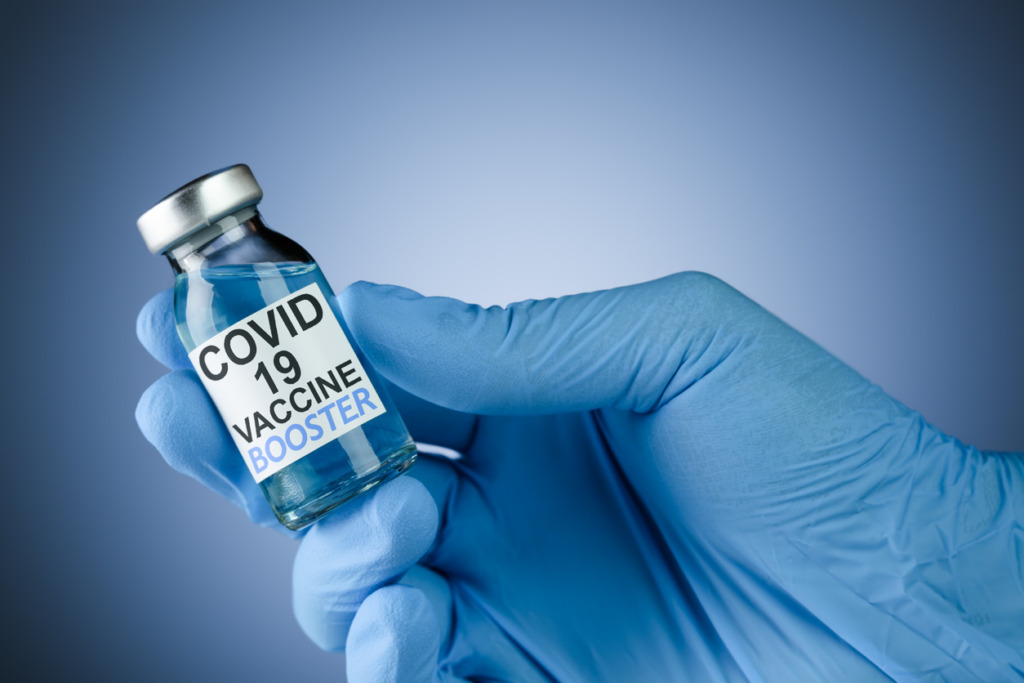Question:
My question regards the Johnson & Johnson vaccine booster. Six months ago, Catholic bishops were recommending to get any vaccine available, notwithstanding that the Johnson & Johnson vaccine was morally questionable.
But now, with vaccines no longer in short supply in the U.S., should Catholics receive a Johnson & Johnson booster, or should Catholics opt instead for the Pfizer or Moderna booster? (Henrico)
Answer:
To be precise, what the U.S. Catholic bishops said in March 2021 was this: “If one can choose among equally safe and effective COVID-19 vaccines, the vaccine with the least connection to abortion-derived cell lines should be chosen. Therefore, if one has the ability to choose a vaccine, Pfizer or Moderna’s vaccines should be chosen over Johnson & Johnson’s.”
That statement came from the chairmen of the bishops’ Committees on Doctrine and on Pro-Life Activities. The moral preference for Pfizer or Moderna is based on the fact that, with these two, an abortion-derived cell line was used for testing them, but not in their production. Johnson & Johnson’s vaccine, however, was developed, tested and is produced with abortion-derived cell lines.
The catch here, though, is that — although the evidence at this point is far from conclusive — medical experts have generally been saying that, ideally, the booster dose should be the same type with which you were first vaccinated.
University of Chicago Medicine, for example, says on its website that Centers for Disease Control recommends “that booster doses match the original mNRA vaccines people received earlier this year. … If you absolutely cannot find a matching dose of vaccine, it would be OK to get the other one.”
Given that medical advice, I would judge that it would be permissible for one previously vaccinated with the Johnson & Johnson to stay with J&J for the booster.
Question:
Growing up as a Baptist, for us to be “saved” (gain entrance into heaven), we had to “invite Jesus into our heart and accept him as our personal savior” — which I have done.
I’ve been a Catholic now for 10 years, and when I attend Mass, I’ve never really heard anything about being “saved” or how to gain entrance into heaven. I would appreciate your shedding some light on this subject. (Indiana)
Answer:
It is true that Paul says in Romans that “if you confess with your mouth that Jesus is Lord and believe in your heart that God raised him from the dead, you will be saved” (10:9). But that has never been viewed by the Catholic Church as a one-time act that guarantees entrance into heaven.
There are a number of other scriptural passages that indicate, instead, that eternal salvation is based on a lifetime of choices.
In Colossians 1:21-23, for example, Paul writes: “And you who were once alienated and hostile in mind because of evil deeds, he has now reconciled in his fleshly body through his death, to present you holy, without blemish, and irreproachable before him, provided that you persevere in the faith, firmly grounded, stable, and not shifting from the hope of the Gospel which you heard.”
That “proviso clause” indicates the Catholic belief that heaven is won by a lifetime of choices and not by a single act. Salvation is not guaranteed by a decision we have made in the past. We continue to have free will and retain the ability to turn away from God if we choose to do so.
Question:
I had attended a nearby Catholic church for more than 20 years. But now I have been driving 40 minutes to another parish because of changes to restore “old traditions” at my local parish.
One of them is the common recitation of the prayer to St. Michael the Archangel immediately after Mass. I find it inappropriate to speak of St. Michael and Satan right after we have been charged to “go in peace to love and serve the Lord.”
At my former parish, I felt hostage to a small minority who tried to control my post-Mass thoughts and feelings instead of letting me leave Mass with the joy of the Eucharist. (Iowa)
Answer:
The prayer to St. Michael was part of a group of prayers called the Leonine prayers that were said in Catholic churches following Mass from 1884 until 1965. They were originally introduced by Pope Leo XIII and stemmed from a vision he reportedly had of Satan wanting to destroy the Church.
The intention for which the prayers were said changed over time. Originally they were offered for the temporal sovereignty of the Holy See but later began to be said for the conversion of Russia.
During the Second Vatican Council, a Vatican instruction implementing the Constitution on the Sacred Liturgy decreed that the Leonine prayers were suppressed and would no longer be used. But the recitation of the prayer to St. Michael has been making a “comeback,” and a number of parishes are now reciting that prayer following Mass.
There has been no official Church declaration that this prayer should be resurrected; if your parish is using it, that is most likely a determination by the local pastor — although it could simply be the choice of a group of parishioners who have decided to pray together after Mass.
In any case, you might want to speak with the pastor of your former parish to let him know of your discomfort with this particular prayer and the fact that it seems to dim the joy with which you should be leaving Mass.

